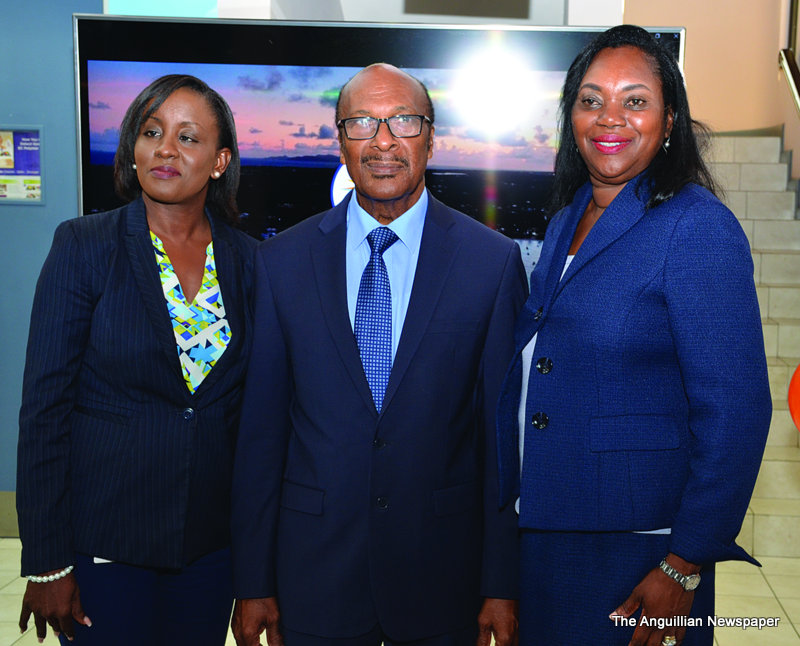The Attorney General, Mr. Dwight Horsford, told media representatives on Tuesday, November 26, that his Chambers had applied to the High Court for a judicial review for the Magistrate to continue the preliminary inquiry into the case against Mr. Gavin Scott Hapgood. He is charged with the manslaughter of a hotel worker in Anguilla, Kenny Mitchell, in April this year.
Mr. Horsford explained that the application for the judicial review came about as the Magistrate, Mr. Keithly Benjamin, said he did not find anything in the law to enable him to continue the preliminary inquiry in the absence of the defendant. Mr. Hapgood, a Connecticut Financial Adviser, did not appear in Court on Monday, November 11, when he was required to do so as part of his bail arrangements, but the inquiry was continuing with Mr. Hapgood being represented by a junior Lawyer, Mr. Patrick Thompson of Tortola.
“As you know, Hapgood has absconded the jurisdiction of the Court,” the Attorney General stated. “By that I mean he willfully absented himself from attending the preliminary inquiry for which he was bailed on quite generous terms. That produced the situation where we had to address our minds as to whether the preliminary proceedings could continue now that he has absconded.”
The Attorney General continued: “My team from the Attorney General’s Chambers, led by Mr. Terrence Williams, former DDP in the BVI, made a submission that his [Hapgood’s] willful absence from the jurisdiction of the Court does not prevent the preliminary inquiry from continuing in his absence. We took the position, under the law, that when a defendant absconds he waives the right to be present and to have evidence taken in his presence.
“The Magistrate’s Code of Procedure does not expressly address a situation where a defendant absconds from the Court. And so we needed the Magistrate to do two things: One, to determine or find as a fact that he has willfully withdrawn himself or absconded from the jurisdiction of the Court; and two, [to determine] the Court’s jurisdiction or authority to continue in those circumstances.
“His Honour, Keithly Benjamin, heard submissions by the AG’s team, led by Mr. Williams, and Mr. Patrick Thompson, who appeared indicating to the Court that he represented Mr. Hapgood. He [Thompson] was the lawyer who communicated orally that Hapgood was not coming – and was not likely to continue in the proceedings or come at all in the future.
“After hearing from my team and Thompson, he found as a fact that Hapgood absconded the jurisdiction of the Court while on bail. As to the question of whether or not he could continue the proceedings in those particular circumstances, he felt that… the Magistrate’s Code of Procedure did not precisely address in expressed terms this kind of situation. He felt that he did not have the power to continue. We indicated to him that we hold a different view –that the Court does have power to continue and we invited him to adjoin while we pursue a judicial review of his decision in the High Court. He gave his written ruling and adjourned the proceedings.”
Mr. Horsford said his team applied for the Magistrate’s ruling to be quashed and that the High Court granted an Order of Mandamus (a command to a lower tribunal, such as the Magistrate’s Court, to comply with a particular law or duty).
The Attorney General added: “My argument, as Attorney General, is not only does the Magistrate, Mr. Keithly Benjamin, has the power to continue the committal proceedings in Hapgood’s absence, but he has a duty to do so. This is particularly with regard to the fact that substantial evidence has been led in Hapgood’s presence which we believe establishes a sufficient case for him to answer at trial on the charge laid against him.”








